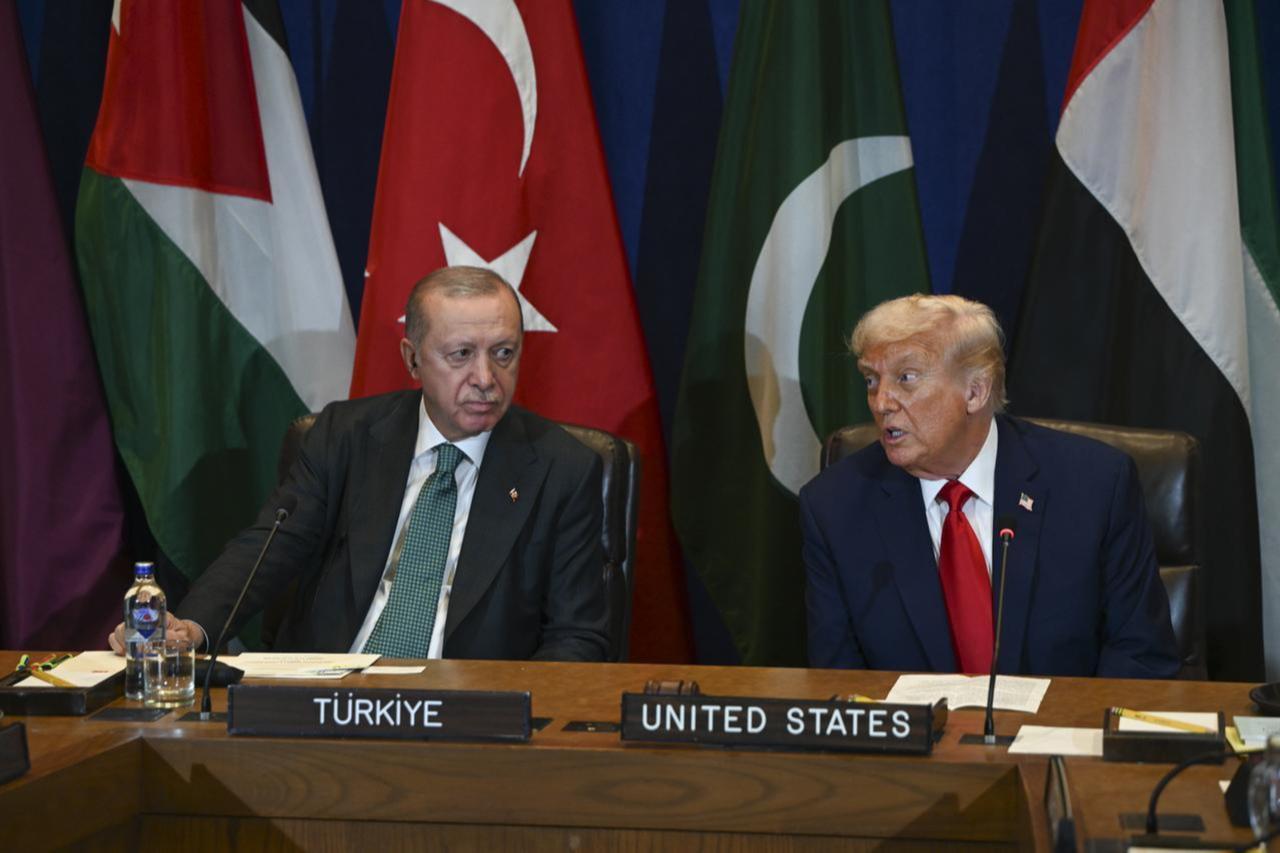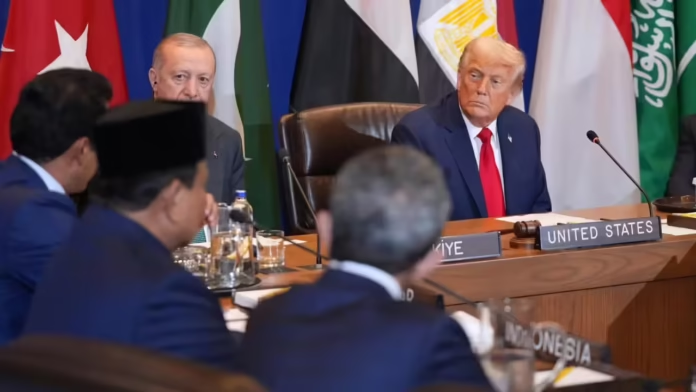Former U.S. President Meets Arab and Muslim Leaders in New York to Address Middle East Tensions
In a high-stakes diplomatic move, former U.S. President Donald Trump assured Arab and Muslim leaders on Tuesday that Israel would not be allowed to annex the occupied West Bank. The meeting, held on the sidelines of the United Nations General Assembly in New York, drew participation from influential states including Saudi Arabia, the United Arab Emirates, Qatar, Egypt, Jordan, Turkey, Indonesia, and Pakistan.
Trump described the closed-door gathering as the “most important meeting of the day,” signaling the significance his team places on stabilizing Middle Eastern relations during a period of heightened tensions.
Trump’s Firm Stand on Annexation

According to multiple reports, Trump made a clear and uncompromising promise that Israel would not be permitted to absorb or formally annex the West Bank. Six individuals familiar with the private discussions confirmed the pledge, with several sources characterizing Trump’s tone as unwavering.
His administration reportedly distributed a white paper during the meeting, outlining a broader framework for resolving the ongoing Gaza conflict. The document included commitments on preventing annexation, post-war governance structures, and future security arrangements designed to ensure regional stability.
Timing Amid International Recognition of Palestine
Trump’s remarks come at a critical juncture in global diplomacy. In recent weeks, countries such as the United Kingdom, France, Canada, and Australia have formally recognized the State of Palestine, a move that has intensified political friction across the region.
Israel’s far-right ministers have responded by threatening unilateral annexation of large portions of the West Bank. Finance Minister Bezalel Smotrich recently proposed incorporating up to 82 percent of the territory, while hardline allies have pressured Prime Minister Benjamin Netanyahu to act decisively.
For Arab leaders, Trump’s assurance was seen as crucial. The UAE has previously declared annexation a “red line” that would dismantle prospects of regional integration. Similarly, Saudi Arabia has issued warnings of “major consequences in all sectors” should Israel move forward with its annexation plans.
Abraham Accords at Risk

At the center of these discussions is the future of the Abraham Accords—historic normalization agreements between Israel and several Arab nations, brokered during Trump’s first term. Arab leaders reportedly cautioned Trump that Israeli annexation of the West Bank could unravel the fragile accords and destabilize regional diplomacy.
Maintaining these agreements is seen as vital not only for economic cooperation but also for U.S. interests in fostering long-term peace in the Middle East. Trump’s explicit commitment was therefore interpreted as an attempt to reassure Arab allies that Washington remains invested in preventing escalation.
U.S. Peace Plan for Gaza
In addition to the annexation issue, Trump introduced his administration’s blueprint for ending the Gaza war. Inspired in part by ideas from former UK Prime Minister Tony Blair, the proposal includes:
-
A multi-week ceasefire aimed at halting hostilities.
-
The release of all remaining 48 hostages during the truce.
-
Exclusion of Hamas from any future governing role in Gaza.
-
The establishment of a stabilization force composed of Arab and Muslim nations, replacing Israeli military presence.
Turkish President Recep Tayyip Erdoğan described the talks as “productive,” while Indonesian President Prabowo Subianto signaled his country’s willingness to contribute peacekeeping troops. Participating nations later issued a joint position paper endorsing a ceasefire, opposing Israeli operations in Gaza, and rejecting the displacement of Palestinians.
Upcoming White House Talks with Netanyahu
The UN discussions set the stage for Trump’s upcoming meeting with Israeli Prime Minister Benjamin Netanyahu at the White House on Monday. Analysts expect Netanyahu to face mounting pressure to accept the U.S.-backed peace plan while shelving annexation ambitions.
The outcome of these talks could prove decisive in determining whether Trump’s broader Middle East strategy—including potential normalization between Saudi Arabia and Israel—remains viable amid the growing diplomatic crisis.
A Critical Moment in Regional Diplomacy
Trump’s pledge not to permit annexation of the West Bank highlights the delicate balancing act facing U.S. policymakers. On one side, Washington seeks to safeguard its alliance with Israel; on the other, it must reassure Arab and Muslim leaders that Palestinian rights will not be ignored.
As the international community increasingly recognizes Palestine, the Middle East finds itself at a crossroads. Whether Trump’s assurances and proposed Gaza roadmap can ease tensions—or whether hardline Israeli policies derail diplomacy—remains to be seen.
For now, Trump’s message at the UN marks a pivotal attempt to stabilize a volatile region, one that could shape the trajectory of Middle Eastern politics in the months ahead.
Sources: Financial Times

